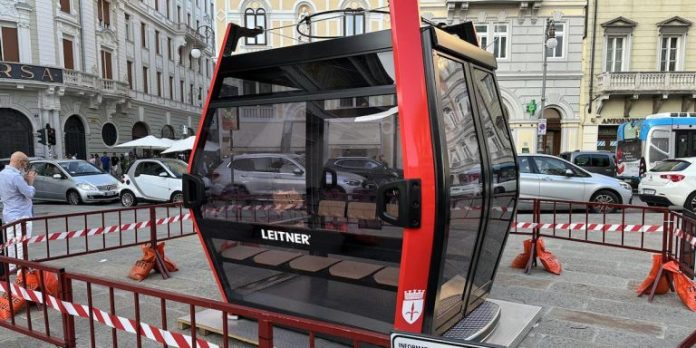by EH
In a rare moment of dialogue between city officials and local opposition, the Municipality of Trieste and members of the “No Ovovia” citizens’ committee came together this week to publicly debate the future of the city’s proposed cable car system. The meeting was made possible by Synapser, a student-led group at the University of Trieste, whose members organized and moderated the event with the aim of fostering open and informed discussion.
The proposed cable car, which would connect the city center with the Karst plateau, has long sparked controversy, with supporters praising its potential to modernize local transportation and critics questioning its environmental and economic impact.
“Young people want clarity, not slogans,” said one Synapser representative. “We invited both sides to present their arguments concisely, so the public could weigh the merits for themselves.”
City officials were given 30 seconds each to state their case. Giulio Bernetti, Director of Public Works, argued that the project “addresses mobility challenges while unlocking the potential of the old port area.” City Councillor Everest Bertoli described the cable car as “a work that propels the city toward the future.”
Representing the opposition, William Starc of the No Ovovia committee cited environmental and economic risks, calling the project “damaging on multiple fronts.” Francesco Russo, a regional politician and outspoken critic, suggested Trieste should follow the lead of other European cities that have prioritized tram systems over cable cars.
The debate also touched on the legal and financial complexities tied to the plan. At the heart of the controversy is a clause in the so-called Salvini Decree, which would redirect €48.8 million in European recovery funds (PNRR) from Padua to Trieste, contingent on Padua receiving an alternate source of funding.
Other concerns included the 2021 urban planning regulation, which provides for 1,400 new parking spaces, and the increasing severity of extreme weather events. Critics argue that construction on deforested and potentially unstable terrain could pose long-term risks.
The cable car project remains one of the most polarizing infrastructure proposals in Trieste’s recent history. Whether the debate has changed minds is unclear, but for at least one evening, it provided a rare forum for civic engagement, driven not by political agendas but by student initiative.





























